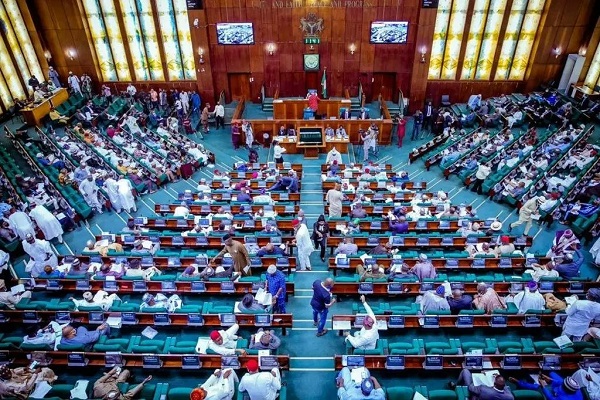…As Russia to face ‘more draconian’ US sanctions over Skripal poisoning***
The US Democrats have taken control of the House of Representatives in the mid-term elections, dealing a blow to President Donald Trump.
Taking control of the lower chamber of Congress for the first time in eight years will enable Democrats to thwart the president’s agenda.
But Mr Trump’s Republicans are set to strengthen their grip on the Senate.
Tuesday’s vote was seen as a referendum on a polarising president, even though he is not up for re-election till 2020.
The election confirms a historical trend for the party that is not in the White House to make gains in the mid-terms.
House Democratic leader Nancy Pelosi – who is set to become Speaker, a position she held from 2007 to 2011 – said told cheering supporters in Washington: “Thanks to you, tomorrow will be a new day in America.”
President Trump focused on the Senate, and praised himself by quoting a commentator.
What’s happening in House races?
Democrats converted the energy of the liberal anti-Trump resistance into solid electoral gains in the first nationwide vote since the president swept to power two years ago.
The BBC’s US partner network CBS projects the Democrats will win the 23 seats they need to take over the lower chamber of Congress. Americans voted for all 435 seats in the House.
The Democrats could now launch investigations into Mr Trump’s administration and business affairs, from tax returns to potential conflicts of interest.
They could also more effectively block his legislative plans, dooming his signature promise to build a wall along the border with Mexico.
Female candidates performed particularly well in an election cycle that had been billed as the Year of the Woman.
Two 29-year-old Democrats, Alexandria Ocasio-Cortez and Abby Finkenauer – are due to be the youngest women ever to win House seats.
Ilhan OImar and Rashida Tlaib are the first Muslim women and Sharice Davids and Debra Haaland the first Native American women to be elected to Congress. All are Democrats.
In the meantime, Russia faces new US sanctions after failing to take steps to prove it has ended its chemical weapons programme in the wake of the Skripal nerve agent attack in the UK in March, the state department has said.
It is unclear what form of sanctions the US will impose but US officials have warned that they would be substantial, potentially affecting diplomatic relations, trade or banking ties.
The US imposed preliminary sanctions on security-related technology to Russia in August, in a signal that it accepted the UK’s assessment that Russian military intelligence was behind the use of the novichok agent in Salisbury against Sergei Skripal, a former Russian spy and his daughter Yulia.
Dawn Sturgess died in July after handling a small bottle contaminated with the nerve agent apparently discarded by Skripal’s attackers. Her partner, Charlie Rowley, was also taken ill after being exposed to the nerve agent.
Under the Chemical and Biological Weapons Control and Warfare Elimination (CBW) Act, the Kremlin was then told it had 90 days to take “remedial measures” to include a formal renunciation of chemical and biological weapon use and admission to suspect sites of international inspectors.
On Tuesday, state department spokeswoman Heather Nauert issued a statement saying “we could not certify that the Russian Federation met the conditions required by [the CBW Act]”.
“The department is consulting with Congress regarding next steps as required 90 days after the initial determination on August 6, 2018,” Nauert said in her statement. “We intend to proceed in accordance with the terms of the CBW Act, which directs the implementation of additional sanctions.”
She did not specify the sanctions under consideration, but under the legislation the president is obliged to impose three sets of sanctions from a menu of six, which includes restrictions on development assistance, bank loans, general non-food imports and exports, downgrading diplomatic relations and suspending landing rights for the national airline, Aeroflot.
At the time the preliminary sanctions were imposed, a senior administration official said the second round would be “more draconian than the first round”.
“It’s designed to be a sliding scale of pressure,” the official said.
The new measures will be additional to already substantial US sanctions against Russia, including those imposed in 2014 for its military intervention in Ukraine, and the 2012 Magnitsky Act, which targets the oligarchs supporting and working on behalf of the Kremlin.
Congress is meanwhile considering its own sanctions bills, which could also have far-reaching effects on the Russian economy. They include the Defending American Security from Kremlin Aggression Act, which would put restrictions on Americans buying Russian sovereign debt and curb investments in Russian energy projects.
Russia denies responsibility for the Skripal attack, suggesting – among other options – that it was a “false flag” provocation by the UK intelligence services. Moscow denounced the first set of sanctions under the CBW act as “illegal”
BBC with additional report from Guardian UK





















